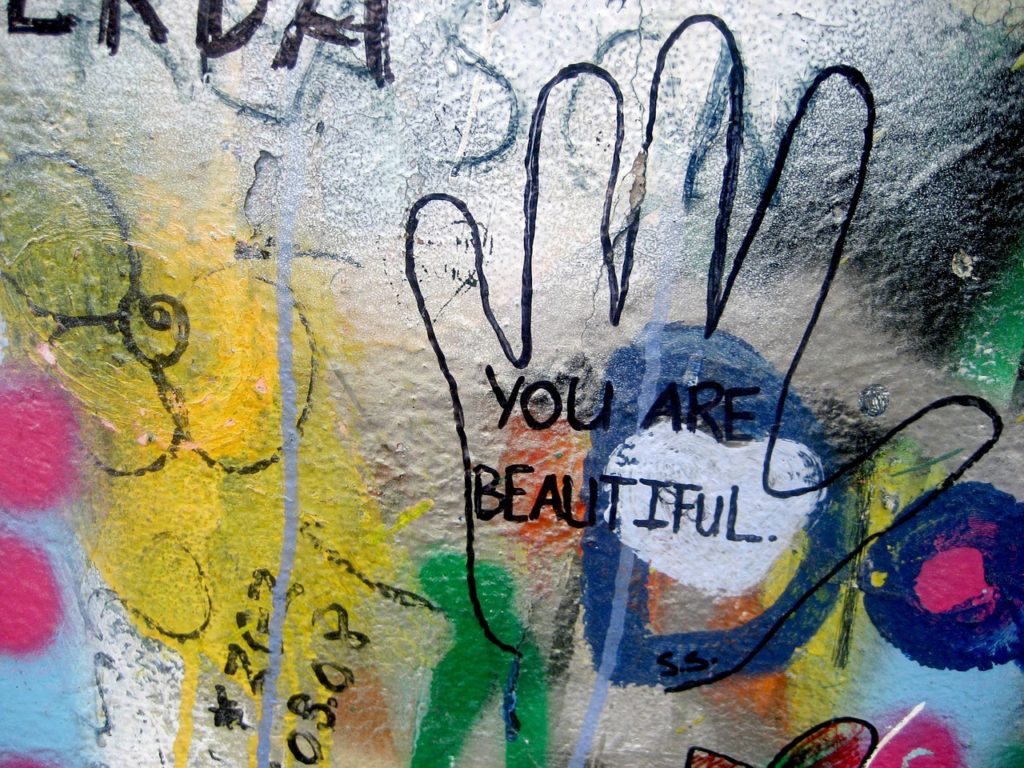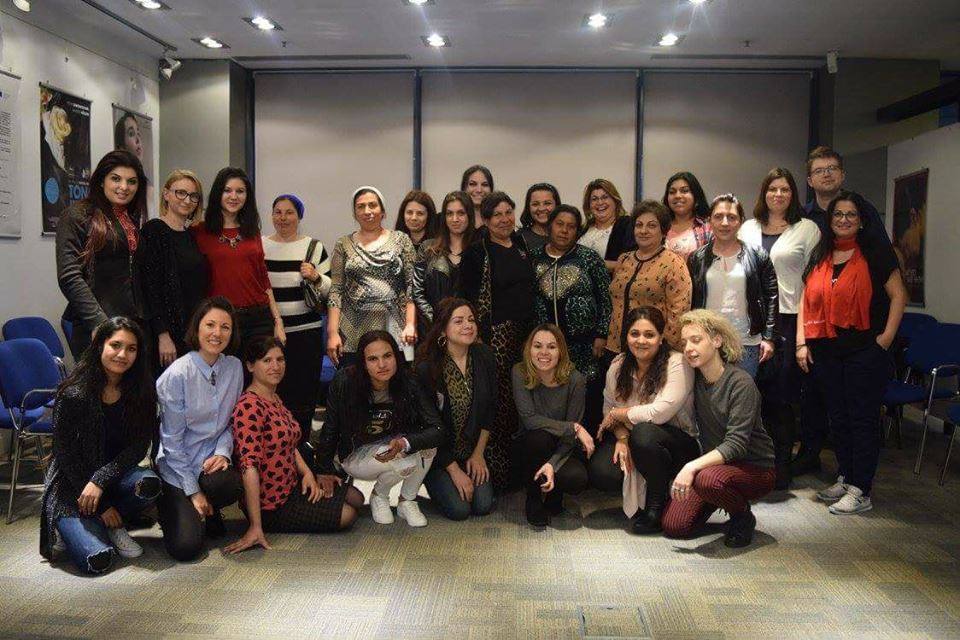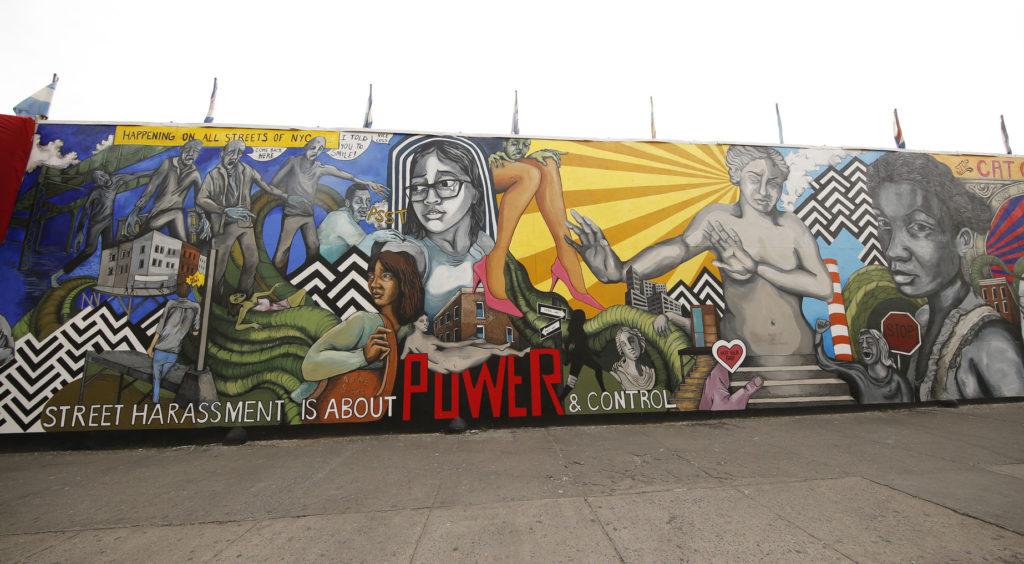Libby Allnatt, Phoenix, AZ, USA, SSH Blog Correspondent
 There’s nothing quite like wearing an outfit again for the first time after you were catcalled while wearing it. While street harassment is obviously not about clothing (if it was then women wearing modest or traditionally “unsexy” clothing wouldn’t get harassed, and they do), it can be easy to attach feelings of violation and disgust to the shorts or a top or skirt or dress you were wearing when someone decided to encroach upon your safety and rights as a human.
There’s nothing quite like wearing an outfit again for the first time after you were catcalled while wearing it. While street harassment is obviously not about clothing (if it was then women wearing modest or traditionally “unsexy” clothing wouldn’t get harassed, and they do), it can be easy to attach feelings of violation and disgust to the shorts or a top or skirt or dress you were wearing when someone decided to encroach upon your safety and rights as a human.
It can also be difficult to return to places where one was once harassed. That street, that intersection, that park will always be filled with the voices of the ill-mannered, the sexist, and the violent that not-so-silently dot our neighborhoods.
According to Stop Street Harassment’s 2014 statistically significant national survey, street harassment caused 47 percent of women to constantly assess their surroundings. Four percent of all harassment victims made bigger decisions as a result of harassment, like moving neighborhoods or quitting a job.
An informal study by Cornell University and Hollaback! showed that 85 percent of women have taken a different route, 73 percent of women took different forms of transportation, and 70 percent avoid going out at night, all to avoid street harassment.
I’ve considered that *any* response can seem like encouragement for harassers to continue the interaction, to treat it like a game
— @PiaGlenn (@PiaGlenn) March 18, 2017
I personally know how taking public transportation in my city is more arduous than just buying a ticket and hopping on the train. I avoid it if I can, avoid taking it at night, and stare out the window in silence praying that no one speaks to me. I tug my skirt down to cover my legs and clutch my keys. I avoid the bus altogether because of what I’ve heard happen to my peers on there.
What makes me the saddest is the look of panic I see in others’ eyes when a girl says she’s walking home. “Text me as soon as you get there,” they plead, horrific possibilities on everyone’s minds but left unsaid.
“I wanted to go, but I also didn’t want to walk home that late,” is another frequent statement I commonly hear (and say myself) when women are discussing why they avoided a particular event or outing.
Male friends of mine have offered to walk me places at night if they know I’m going somewhere on my own. I always decline, and I’m both reassured by their willingness to help and sad because this is our reality.
Street harassment has emotional and psychological damage, as sexualization of girls and women can lead to depression, anxiety and eating disorders. It makes leaving our homes feel less safe.
Anyone who has been harassed and gone home shaking knows this feeling. Anyone who been harassed on the way to work or school and has to shake it off and act like they didn’t just feel scared for their lives knows this feeling.
Because it’s never just a catcall. It always has the potential to escalate to something much worse, because it has.
96% of participants experienced street harassment & 45% said over 15 times. Harassment is Never Okay @iHollaback @HollabackOttawa pic.twitter.com/zsQ7kKWSD6
— David Veshkini (@DVeshkini) March 30, 2017
My female friends and I adorn our keychains with colorful and sparkly pepper spray, as we try and pretend they’re accessories rather than self-defense weapons. Much to the dismay of my loved ones, I often leave my pepper spray at home. A part of me doesn’t want to admit that we need to be armed to move about in public spaces lest we become another victim, another statistic.
Surely many men often feel frightened at night as well. Many forms of crime, like robbery and assault, don’t discriminate based on gender. But the reality is that sexually-charged threats to bodily autonomy are a different animal to navigate, and usually reserved for women. I don’t know many men who tremble when they hear a shout on their walk home. I don’t know many men who grip their keys between their fingers, trying to determine if they would be capable of gashing out the eyes of someone twice their size if they had to. I don’t many men who alter their daily lives because catcalls, gropes, stalking, and rape are genuine possibilities.
While caution should not be thrown to the wind (I will continue to get the hell out a place where someone is making me feel uncomfortable, and perhaps I will swallow my pride and start carrying my pepper spray), I feel disgusted at a world where women have any burden to bear that men do not.
The other day, I returned to a spot where I was harassed that I had been avoiding for some time. I sat. I took up space. I enjoyed the world around me – the air, the sky, the birds, the city. I won’t let harassers keep me inside, and you shouldn’t either.
Libby is a student at Arizona State University. Originally from Salt Lake City, Utah, she is majoring in journalism with a focus on print and she is minoring in psychology and women’s studies. You can follow her on Twitter @libbyallnattasu and Instagram @LibbyPaigeA.




